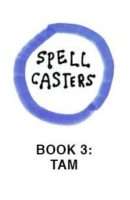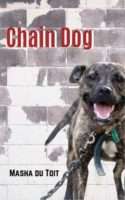Warning! Qapela! Take a deep breath. This Talking Points is about serious, scary stuff that affects you, and your future. All of us. Literally all of us – humans and plants and insects and animals and bacteria – every living thing – on our planet Earth. But keep reading through the scary bits. You will see there is hope that, as Desmond believes in Wild Times, we humans can still make big changes to overcome the problems.
Many, many scientists and environmental journalists and organisations are now warning that we are at a dangerous, make-or-break, point of time on planet Earth. And, as the saying goes: ‘There is no Planet B’ to save us.
What’s the problem? In May this year (2019) the United Nations put out a shocking report that said, “The Report finds that around 1 million animal and plant species are now threatened with extinction, many within decades, more than ever before in human history.” It warns that overpopulation is now seriously harming even the plants, animals and insects that we humans need to survive. These include vital things like bees, that are essential to pollinate our crops. You can read the whole report here.
Note that the United Nations is not a business trying to make money. It is not in favour of the policies of any one country or ideology. It is a voice we can most trust about this issue.
And it’s clear: the problem of extinction is caused by us humans. Why?
Until 1800 the world population grew slowly until there were about one billion people. Then, due to big advances in health care, food supply and so on, it suddenly grew exponentially (very, very fast) to become well over 7 billion today. That is 7 x 1000 million!
All these modern humans – ‘we/us’ – are clearing more and more natural vegetation. We do this to grow crops and fodder for domestic animals. We do it to grow plants like cotton and sugar cane, or to dig mines, to make more and more consumer goods. We have already destroyed or drastically changed about 70% of the globe’s habitats, including the oceans. A habitat is a type of place where wild animals and plants and water creatures can live and survive, such as jungle, or grassland, or wetland. We also use poisons to kill things that affect our crops and so lower profits, without thinking of the future. In the process we kill lots of other innocent living things too.
Plus, all us billions of humans and our industries want energy – electricity mostly. We have been burning fossil fuels (especially coal) to make this. This has polluted the air, harming living things, and has caused our climate to change. The world is becoming hotter, and weather patterns are getting more extreme, and habitats are changing. We are having worse droughts, and floods and heat waves.
And, as Wild Times shows, many of us humans have an insatiable demand for the meat, ivory, bones and fur of certain wild animals. Plus some are stolen from the wild to keep as pets – like them being in jail. Many have already become extinct.
Here are some examples. Apes and monkeys and many other wild animals (bushmeat) are eaten in West Africa; pangolins and other rare animals are sold in the far East (e.g. Vietnam, China and Thailand) as expensive food for rich people; rhino horn and lion bones are smuggled to the far East for expensive so-called ‘medicine’; vulture skulls and other rare animal parts are used for so-called ‘medicine/muthi’ in Africa; elephant ivory is used for carvings in the far East. Plus all sorts of rare mammals, reptiles and birds are captured everywhere to sell as expensive ‘show pets’ in, for example, America.
What about the emotional, spiritual and moral aspect of humans causing these extinctions? How do we have the ‘right’ to overwhelm and destroy all the other species we share this planet with? Will we, like the characters in Wild Times, suffer great sadness at the loss of animals that inspire awe, curiosity and joy in us? They are part of the richness of our planet. Imagine them all gone?
Many groups of people and individuals feel emotional or spiritual connections to, for example, ‘clan animals’ – like Phiwo when she first sees the elephants in the wild:
“She’s a bit like my gogo, thought Phiwo, smiling. And what a contrast it all was to viewing the single, tame elephant in the Joburg zoo. It must be so lonely.
“Guys,” she said after a while, “you do all know what my surname means, don’t you?”
“Ewe, ndiyakwazi Ms Ndlovu,” smiled Lesley. “And now, I reckon you truly understand the natural magic of your name!”
So, it’s no wonder that Lesley feels so passionate: “Zodwa, every South African kid has to – has to – learn to care about our last pieces of priceless wilderness. …More and more urbanites are hungry to reconnect with the wild, yet everything wild is under such threat. So we should be teaching our kids to treasure–”
One of the places Lesley treasures is our world-famous Kruger National Park. You might think that ‘national parks’ can only be good. Why doesn’t our government quickly set aside more of them? In the past, ‘preserving’ land like this caused a lot of pain. We do need to remember our history, and take care over declaring nature reserves.
Think about Narina saying that the settlers came here and “messed things up” historically. She knows that her ancestors – the European colonizers – took over nearly all the land of South Africa and immediately started clearing natural vegetation to plant massive farms of cash crops such as sugar cane, maize and alien wattle trees. Plus, they hunted with guns. Suddenly thousands of animals could be killed, easily, for skins, meat and ivory, for example. But many of these despicable hunters killed countless wild animals just for sport – they could not even eat all the meat.
But then, some of the colonisers began to see the consequences. This could not go on – some land, like Kruger Park, had to be preserved if they still wanted to have wild animals and habitats left. However, most of the area they set aside was traditionally ‘owned’ or controlled by groups of people, such as the Makuleke community in the Limpopo part of Kruger Park. Today, after the abuses of colonialism and apartheid, six groups of people from the Kruger area have been compensated with money for land they lost, and will be helped in their new settlements. Everyone agrees that today its best that Kruger Park is kept as a wonderful resource for all. You can read about this here.
Here is a different type of example: traditional Nama herders have the right again to herd their small herds of goats and sheep in the Richtersveld National Park in Northern Cape. This is a unique area of natural beauty, with few predators.
In Wild Times Grant says to Narina: “You have to live in the moment in the bush. It’s a privilege to even be here, my girl.”
There are two important things to think about in that statement. All over the world there is rapid urbanisation. All over the world too few wild places have been saved. So we urbanites need to appreciate that it is a privilege for us to have them, and we must guard them well: from habitat destruction and from poachers. We must also aim make national parks easy for poorer people to visit; not just places for the well-off.
Also, learning to ‘be in the moment’ in stress-free, natural places is being recognised more and more as good for our physical and mental health, as Lesley and Grant realise.
Researchers have found that: “… there was a scientifically significant increase in people’s health, happiness, connection to nature and active nature behaviours…” when they took part in a long ‘nature challenge’. Plus “…children exposed to the natural world showed increases in self-esteem. They also felt it taught them how to take risks, unleashed their creativity and gave them a chance to exercise, play, and discover. … providing a calming influence and helping them concentrate.” There are many articles on this, but you can read more here.
In the story, Phiwo discovers nature as a new source of interest and joy and peace: “It seemed like she was in a new, richer world; as if her ears and eyes had been somehow blocked before. She could now hear bird and insect calls all around, near and far, and was noticing small creatures everywhere. Time seemed to slow down.”
Phiwo also loves that Desmond is hopeful that young people, especially, are taking on the problems of extinction and turning things around.
Here are some facts that can give us hope:
- Young people around the world are becoming very environmentally aware, and challenging governments to act on climate change. This is especially through the huge Extinction Rebellion movement. It’s exciting! It, “… uses nonviolent resistance to protest against climate breakdown, biodiversity loss, and the risk of human extinction and ecological collapse.” (Wikipedia) There is a South African branch. Google Extinction Rebellion here.
- You can also follow brave teen climate change activists, like Greta Thunberg, who has even spoken at a United Nations climate change conference. Greta wants all adults and world leaders to know that today’s young people do not want to inherit a world damaged beyond repair. She’s on Facebook and Twitter and Instagram.
- Renewable, non-polluting sources of energy, such as solar and wind and power, are starting to become cheaper, and replace coal. This is especially so in the developed world, that has caused most climate change. South Africa is still one of the worst offenders using coal power stations, but we are slowly starting to change.
- In many countries, populations are now falling, or stabilising, for example in Japan, Italy, South Korea and Ukraine. Demographers expect that in the near future the world population will stabilise or decrease. The better off people are, and the more educated women are, the fewer children they have – a great reason for decreasing poverty and increasing the numbers of girls getting well educated!
- There is a growing ‘re-wilding’ movement in the world. Part of this is restocking wild animals on land where they have all been killed. Plus more farmland is being returned to wilderness. This is especially in places where farming was not very profitable, and because there are now more efficient ways of farming, such as in greenhouses. Our Tankwa Karoo National Park, for example, used to be farmland. Also, many farms now join into ‘conservancies’, that carry on farming but also preserve types of natural habitat and the animals in them.
In the end, the main theme of Wild Times in seen through the character of Phiwo, because she has had a life-changing experience: “She could never simply go back to taking the environment and its creatures for granted. Be unaware and uncritical of what humans were doing to the planet. How they – we – were putting ourselves at the centre of everything, no matter what the consequences.”
Tell us: Do you believe that spending more time outdoors in nature would make you healthier and happier? Should every suburb have access to a park with trees and plants, birds and small animals?
Here is an interesting short video clip on how urban greenspace lowers crime and depression.





